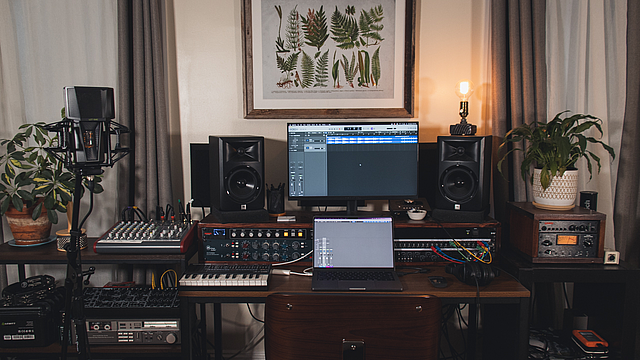
A music studio is a space designed specifically for recording, mixing, and producing music. It is equipped with state-of-the-art technology and instruments to help musicians and producers create high-quality tracks and albums. Music studios can vary in size and layout, but the common goal is to provide a professional environment for artists to bring their creative vision to life.
From large commercial studios to home recording setups, music studios are essential for capturing the sounds of instruments and vocals with precision and clarity. Whether you are a solo artist looking to produce your next single or a band recording an entire album, the right music studio can make all the difference in the final product. In this article, we will explore the various components of a music studio and how they contribute to the overall music-making process.
The Components of a Music Studio
Music studios are equipped with a variety of components that contribute to the production process. These can include recording booths, control rooms, mixing consoles, microphones, and software for editing and post-production. Recording booths are acoustically treated spaces where musicians can perform without interference from outside noise. Control rooms house the mixing console, computers, and monitors for producers and engineers to oversee the recording and editing process. Microphones are essential for capturing the nuances of instruments and vocals, while mixing consoles allow for adjusting levels, effects, and equalization to create a balanced sound. Software programs like Pro Tools and Logic Pro enable producers to edit, mix, and master tracks to achieve a polished final product. For aspiring young artists looking to kickstart their musical journey, programs like click here provide access to professional equipment and guidance to develop their skills and confidence in a supportive setting.

Enhancing Creativity with Music Studios
Music studios play a crucial role in enhancing creativity and productivity for musicians and producers. By providing a dedicated space free from distractions, artists can fully immerse themselves in the music-making process. The right studio setup can inspire new ideas and experimentation, leading to innovative sounds and compositions. Whether working on a solo project or collaborating with other musicians, the environment of a music studio fosters teamwork and collaboration.
In conclusion, music studios are the heart of the music production process, providing a space where artists can bring their creative vision to life. By utilizing state-of-the-art technology and equipment, music studios offer a professional environment for recording, mixing, and producing high-quality tracks and albums. Whether in a large commercial studio or a home recording setup, the components of a music studio work together to capture the nuances of instruments and vocals with precision and clarity. Ultimately, music studios not only enhance creativity and productivity for musicians and producers but also provide a platform for aspiring artists to showcase their talent and develop their skills in a supportive setting.





